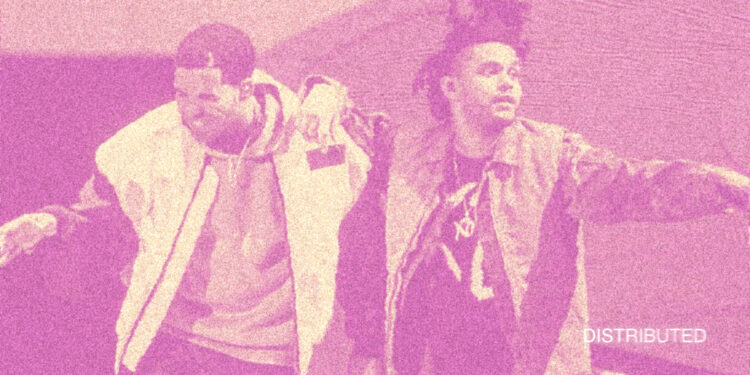A TikTok user, Ghostwriter977, published a song called Heart On My Sleeve featuring Drake and The Weeknd – the catch, neither of these artists had written or sung the song. It was generated with the use of artificial intelligence.
The song has been trending on social media, as it is hard to differentiate between the fake and real artists. Although, these claims of AI generation are solely from the TikToker and it is unclear the exact process used to formulate the song.
Universal Music Group (UMG), has called for streaming platforms to ban AI-generated content, as they control ~33% of the global music market. Financial Times reported that UMG doesn’t want AI companies accessing songs from their catalogues and that they “will not hesitate to take steps to protect our rights and those of our artists.”
In a letter to Billboard, UMG stated; “The training of generative AI using our artists’ music (which represents both a breach of our agreements and a violation of copyright law) as well as the availability of infringing content created with generative AI on DSPs, begs the question as to which side of history all stakeholders in the music ecosystem want to be on: the side of artists, fans and human creative expression, or on the side of deep fakes, fraud and denying artists their due compensation,”
Replicating Artists By Training AI Models
In regards to the AI-generated song, Roberto Nickson, on Twitter, released a video showing how he trained an AI model to replace his vocals in a song with Kanye West.
This was done by recording reference vocals and then replacing them with a language model based on a certain musician – it is really that simple. This marks the beginning of a potentially revolutionary technology for music and musicians, and it only gets better from here, for the technology at least – regulation and copyright may limit the endless potential of artificial intelligence in the music industry.



